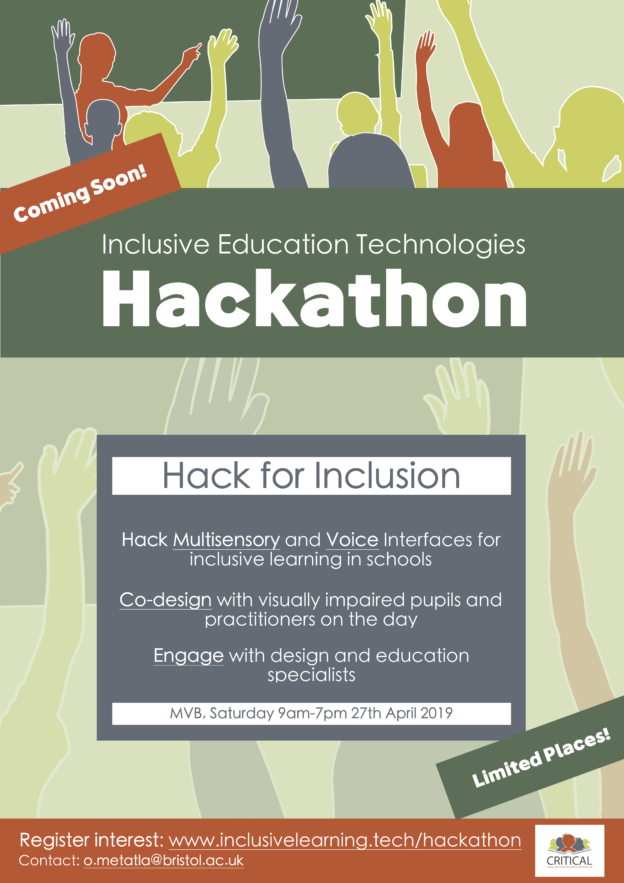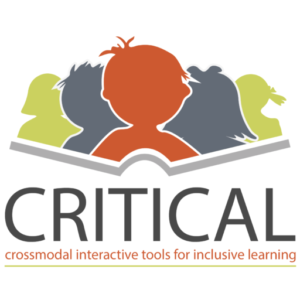Application information: We are seeking a person with an interest in employing human-computer interaction methodologies to evaluate new AI technologies and their impact on children over time. The ideal person would have an undergraduate or Master’s degree in a relevant discipline such as Computer Science, Psychology or Social Science and would be interested in both quantitative and qualitative methods. Strong background in design and evaluation, experience working with children, disability, or minority population as well as demonstrated capability for research (e.g. through publication) are particularly desirable.
Applicants are encouraged to contact us as soon as possible. For further details or to discuss this contact Dr Oussama Metatla including a full CV and any relevant details.
Continue reading


 The study is part of the Crossmodal Interactive Tools for Inclusive Learning project, an EPSRC-funded project in which we aim to design and research technologies that are inclusive of both sighted and visually impaired children in the context of mainstream education.
The study is part of the Crossmodal Interactive Tools for Inclusive Learning project, an EPSRC-funded project in which we aim to design and research technologies that are inclusive of both sighted and visually impaired children in the context of mainstream education. PhD Studentship available to work as part of the EPSRC research project: “Crossmodal Interactive Tools for Inclusive Learning” (EP/N00616X/2). The project aim is to investigate novel multisensory learning and teaching technologies that support inclusive education for visually-impaired and sighted children in mainstream schools. We use an iterative user-centred approach combining participatory design activities with empirical research into multisensory and crossmodal interaction to find out how different senses can be effectively integrated with visual capabilities to support inclusive learning. We are engaged with local schools to design, implement and research augmented multisensory tools for teaching and learning purposes, focusing on accommodating curriculum requirements and social processes surrounding collaborative learning.
PhD Studentship available to work as part of the EPSRC research project: “Crossmodal Interactive Tools for Inclusive Learning” (EP/N00616X/2). The project aim is to investigate novel multisensory learning and teaching technologies that support inclusive education for visually-impaired and sighted children in mainstream schools. We use an iterative user-centred approach combining participatory design activities with empirical research into multisensory and crossmodal interaction to find out how different senses can be effectively integrated with visual capabilities to support inclusive learning. We are engaged with local schools to design, implement and research augmented multisensory tools for teaching and learning purposes, focusing on accommodating curriculum requirements and social processes surrounding collaborative learning.